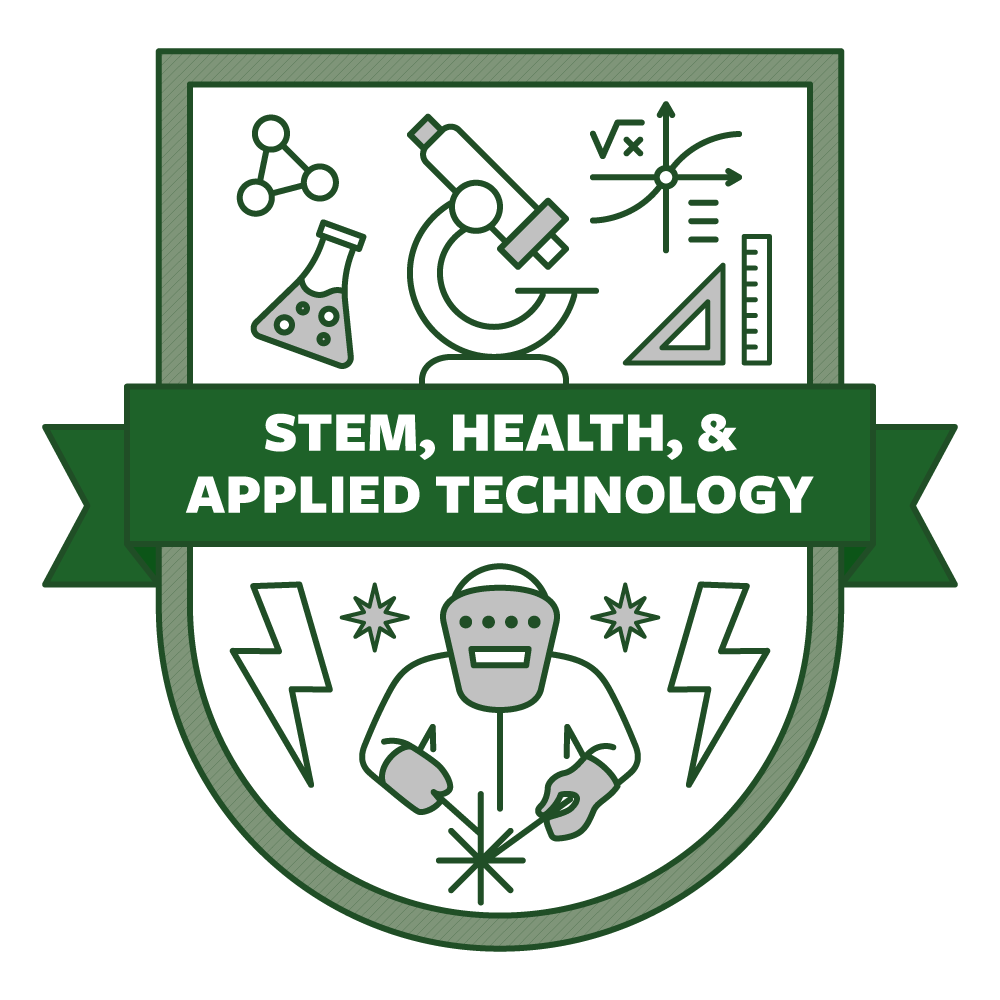Courses Offered at
Certificates & Degrees
Ready to get started?
Apply and get ready for our next term:
- Fall 2025 — Classes start Aug 11
About the Interdisciplinary Studies Discipline
Our Interdisciplinary Studies includes numerous offerings to focus on earning a certificate for completion of UC/CSU general education requirements, to earning degrees in Arts & Humanities, Natural Sciences, Social and Behavioral Sciences, Social Justice Studies, Child and Adolescent Development, Pre-Health Occupations, Law, Public Policy, and Society.
Certificates in Interdisciplinary Studies
This certificate is designed for students planning to transfer to a California State University (CSU) campus. Completion of this certificate ensures that the student has met the lower division General Education requirements for all CSU campuses.
Earning this Certificate of Achievement will not replace the CSU/GE Certification document. The “Certification of CSU General Education Breadth” is a separate process. Students must request CSU/GE Certification at the time they request a final WCC transcript to be sent to the CSU school they plan on attending. File this request with the Office of Admissions and Records.
Program maps suggest courses to take by semester and include career and transfer information when available.
Required Courses for this major (39 Units)
Students must complete a minimum of 39 units used to satisfy the CSU General Education requirements. See the CSU General Education patterns listed in the Woodland Community College (WCC) catalog or consult with an WCC counselor. 39 Total Units
Students must complete a minimum of 39 units used to satisfy the CSU General Education requirements. See the CSU General Education patterns listed in the Woodland Community College (WCC) catalog or consult with an WCC counselor. (39 Units)
- Woodland Campus
- Lake County Campus
- Fully Online
This certificate is designed for students planning to transfer to a California State University (CSU) or University of California (UC) campus. It ensures that the student has met the lower division Intersegmental General Education Transfer Curriculum requirements for all CSU and UC campuses.
Earning this Certificate of Achievement will not replace the IGETC Certification document. The “Certification of IGETC” is a separate process. Students must request IGETC Certification at the time they request a final WCC transcript to be sent to the UC or CSU school they plan on attending. File this request with the Office of Admissions and Records.
Program maps suggest courses to take by semester and include career and transfer information when available.
Required Courses for this major (34–37 Units)
Students must complete a minimum of 34–37 units used to satisfy IGETC certification requirements. See the IGETC pattern in the Woodland Community College (WCC) catalog or consult with a WCC counselor. 34–37 Total Units
Students must complete a minimum of 34–37 units used to satisfy IGETC certification requirements. See the IGETC pattern in the Woodland Community College (WCC) catalog or consult with a WCC counselor.
- Woodland Campus
- Lake County Campus
- Fully Online
Associate Degrees in Interdisciplinary Studies
The Arts and Humanities AA has an interdisciplinary area of emphasis on the cultural activities and artistic expressions of human beings. Students who complete this degree will develop an awareness of the ways in which people throughout the ages and in different cultures have responded to themselves and the world around them in artistic and cultural creation.
Students who complete this degree can earn higher wages in entry-level positions in a variety of fields, particularly ones that prefer familiarity with the arts and humanities. The degree may also prepare students for careers that require further study, such as art directors and curators, set and exhibit designers, and educators; students who plan to transfer should meet with a counselor to ensure that transfer requirements are met.
Program maps suggest courses to take by semester and include career and transfer information when available.
Required Courses for this major (18 Units)†
Select 18 units from courses that meet the WCC General Education Area 3 (Arts and Humanities) requirements. Courses in area of emphasis must be selected from at least 3 different disciplines, and completed with a C or better. (18 Units)
Students must also complete WCC Graduation and General Education requirements, including additional degree-applicable coursework to reach 60 units. (42–42 Units)
- Woodland Campus
- Lake County Campus
- Fully Online
The Associate in Arts in Child and Adolescent Development for Transfer degree is an interdisciplinary program designed to prepare students for continued study in a range of majors at a CSU, including Child and Adolescent Development, Family Studies, and Human Development. The core courses give a solid foundation in psychology with electives in biology, early childhood education, and sociology.
Human development majors study both the biological factors such as growth, physical maturation and aging, and social factors such as parenting, education and personal choices, that affect the developmental process. While careers in this field typically require more than 2 years of study, human development graduates find employment as educators in early childhood and more advanced settings, as social workers and counselors, and in governmental or private agency settings relating to social welfare and recreation. Graduates are also prepared to pursue advanced degrees in behavioral and social sciences, education, social work, family law or health sciences.
Students who complete an Associate Degree for Transfer (AA-T or AS-T) will receive priority admission with junior status to the California State University System and priority admission consideration to their local CSU campus or to a program that is deemed similar to their community college major. This priority does not guarantee admission to specific majors or campuses. Students should consult with a counselor for more information on specific university major admission and transfer requirements. The following are required for all AA-T or AS-T degrees: – Minimum of 60 CSU transferrable semester units – Minimum grade point average (GPA) of at least 2.0 in all CSU-transferable coursework – Satisfactory completion (C or better OR Pass*) of courses used to satisfy major requirements AND courses used to complete the California General Education Transfer Curriculum (Cal-GETC) requirements *Some majors may not accept a Pass in place of a letter grade. Consult with a counselor before choosing the P/NP grading option.
Program maps suggest courses to take by semester and include career and transfer information when available.
Required Courses for this major (19–20 Units)†
Required Courses (13 Units)
- ECE3 Child Growth and Development (3 Units)
- PSYCC1000 Introduction to Psychology (3 Units)
- PSYCH41 Lifespan Development (3 Units)
- STATC1000 Introduction To Statistics (4 Units)
Natural Science Elective (choose one) (3–4 Units)
- BIOL10L General Biology (4 Units)
- BIOL15 Bioscience (4 Units)
- NUTR10 Principles of Nutrition (3 Units)
Social Science Elective (choose one) (3 Units)
- ANTHR2 Cultural Anthropology (3 Units)
- ECE31 Child, Family, Community (3 Units)
- SOCIL10 Sociology of Marriage and Family (3 Units)
- Woodland Campus
- Lake County Campus
The Associate in Arts in Law, Public Policy, and Society for Transfer (AA-T) degree is designed to provide a seamless pathway for transfer to a CSU in majors such as American Studies, Criminology, Global Intelligence and National Security, International Relations, Philosophy, and related majors in the fields of law and public policy. This interdisciplinary area of emphasis emphasizes the development of communication skills, introduces students to foundations of law and public policy in society, and prepares students for further study in a variety of majors. This degree coursework is good preparation for students who want to attend law school upon completion of a bachelor’s degree. Students who complete more advanced degrees in these areas are preparing for careers in government, politics, and public offices within public and nonprofit organizations or the private sector.
Students who complete an Associate Degree for Transfer (AA-T or AS-T) will receive priority admission with junior status to the California State University System and priority admission consideration to their local CSU campus or to a program that is deemed similar to their community college major. This priority does not guarantee admission to specific majors or campuses. Students should consult with a counselor for more information on specific university major admission and transfer requirements. The following are required for all AA-T or AS-T degrees: Minimum of 60 CSU transferrable semester units; Minimum grade point average (GPA) of at least 2.0 in all CSU-transferable coursework; Completion of all courses in the major with grade of C or better or a P if the course is taken on a pass-no pass basis; Certified completion of the California State University General Education-Breadth pattern (CSU GE Breadth) or the Intersegmental General Education Transfer Curriculum (IGETC) pattern
Program maps suggest courses to take by semester and include career and transfer information when available.
Required Courses for this major (32 Units)†
Required Courses (26 Units)
US History course (3 Units)
US History course (3 Units)
- HIST17A United States History (3 Units)
- HIST17B United States History II (3 Units)
- AJ11 Criminal Law (3 Units)
- ENGL1A College Composition and Reading (4 Units)
- ENGL1C Critical Thinking/Advanced Composition (3 Units)
- PHIL2 Ethics (3 Units)
- POLSC1 Introduction To American Government (3 Units)
- STAT1 Introduction To Statistical Methods (4 Units)
- SPECH6 Small Group Communication (3 Units)
Restricted Electives (choose two from different disciplines) (6 Units)
- AJ14 Criminal Justice Process (3 Units)
- AJ19 Multicultural Communities and the Justice System (3 Units)
- ECON1A Elementary Economics-Macro (3 Units)
- GNBUS18 Business Law (3 Units)
- POLSC2 Introduction to Political Theory (3 Units)
- POLSC3 Comparative Government and Politics (3 Units)
- SOCIL2 Social Problems (3 Units)
- Woodland Campus
- Lake County Campus
- Fully Online
The Natural Sciences AS has an interdisciplinary area of emphasis on the study of the natural world, its life forms, and the transformations of matter and energy, as well as the procedure by which new information is acquired and the scientific method. Students who complete this degree will develop an understanding of the relationships between science and other human activities.
Students who complete this degree can earn higher wages in entry-level positions in a variety of fields, particularly ones that prefer familiarity with the natural sciences. The degree may also prepare students for careers that require further study, such as conservationists, researchers and lab technicians, and educators; students who plan to transfer should meet with a counselor to ensure that transfer requirements are met.
Program maps suggest courses to take by semester and include career and transfer information when available.
Required Courses for this major (18 Units)†
Area of Emphasis: Select 18 units from courses that meet the WCC General Education Area 5 (Natural Sciences) requirements. Courses in area of emphasis must be selected from at least 3 different disciplines, and be completed with a C or better. (18 Units)
Additional Requirements: Students must also complete WCC Graduation and General Education requirements, including additional degree-applicable coursework to reach 60 units. (42–42 Units)
- Woodland Campus
- Lake County Campus
- Fully Online
This degree prepares students interested in a variety of Allied Health occupations with a rigorous course of study, including coursework required for many allied health majors including Nursing, Medical Laboratory Technology, and others. Since each training program requires a unique set of prerequisite coursework, it is imperative that students work closely with counselors to ensure the appropriate courses are chosen for the training program they wish to enter. Completion of the degree does not guarantee enrollment in any health occupation program.
Program maps suggest courses to take by semester and include career and transfer information when available.
Required Courses for this major (24 Units)†
Physical and Biological Science Courses (15 Units)
- BIOL1 Principles of Biology (5 Units)
- BIOL4 Human Anatomy (4 Units)
- BIOL5 Human Physiology (4 Units)
- BIOL6 Introductory Microbiology (4 Units)
- BIOL15 Bioscience (4 Units)
- CHEM1A General Chemistry I (5 Units)
- CHEM1B General Chemistry II (5 Units)
- CHEM2A Introductory Chemistry (5 Units)
- CHEM2B Introductory Chemistry (4 Units)
- PHYS1A General Physics I (4 Units)
- PHYS1B General Physics II (4 Units)
Restricted Electives (9 Units)
- ANTHR2 Cultural Anthropology (3 Units)
- ECE3 Child Growth and Development (3 Units)
- NUTR10 Principles of Nutrition (3 Units)
- PSYCH1A General Psychology (3 Units)
- PSYCH41 Lifespan Development (3 Units)
- SOCIL1 Introduction To Sociology (3 Units)
- SPECH1 Public Speaking (3 Units)
- SPECH3 Argumentation and Critical Thinking (3 Units)
- SPECH6 Small Group Communication (3 Units)
- SPECH7 Interpersonal Communication (3 Units)
- STAT1 Introduction To Statistical Methods (4 Units)
- Woodland Campus
- Lake County Campus
The Social and Behavioral Sciences AA has an interdisciplinary area of emphasis on people as members of society. Students who complete this degree will develop an awareness of the methods of inquiry used by the social and behavioral sciences, the ways people act and have acted in response to their societies, and how societies and social subgroups operate.
Students who complete this degree can earn higher wages in entry-level positions in a variety of fields, particularly ones that prefer familiarity with the social and behavioral sciences. The degree may also prepare students for careers that require further study, such as social and community service managers, researchers, and educators; students who plan to transfer should meet with a counselor to ensure that transfer requirements are met.
Program maps suggest courses to take by semester and include career and transfer information when available.
Required Courses for this major (18 Units)†
Area of Emphasis: Select 18 units from courses that meet the WCC General Education Area 4 (Social and Behavioral Sciences) requirements.> Courses in area of emphasis must be selected from at least 3 different disciplines, and completed with a C or better. (18 Units)
Additional Requirements: Students must also complete WCC Graduation and General Education requirements, including additional degree-applicable coursework to reach 60 units. (42–42 Units)
- Woodland Campus
- Lake County Campus
- Fully Online
The Associate in Arts in Social Justice Studies for Transfer (AA-T) degree at Woodland Community College prepares students for seamless transfer into Social Justice Studies, Ethnic Studies (including African American Studies, Asian American Studies, Chicana/o Studies, and Native American Studies), Gender Studies (including LGBTQ studies and Women’s Studies), and related majors in the CSU system.
Students who choose to major in Social Justice Studies and related fields have a wide range of career options: activists, community organizers, public policy analysts, conflict resolution specialists, human relations workers, NGO workers, human rights groups, political campaigners, workers in environmental organizations, alternative media, human rights groups, political campaigns, religious organizations, international agencies, mediators, rights advocates, journalists, lobbyists, and community organizers. Most careers require more than an Associate degree.
Students who complete an Associate Degree for Transfer (AA-T or AS-T) will receive priority admission with junior status to the California State University System and priority admission consideration to their local CSU campus or to a program that is deemed similar to their community college major. This priority does not guarantee admission to specific majors or campuses. Students should consult with a counselor for more information on specific university major admission and transfer requirements. The following are required for all AA-T or AS-T degrees: – Minimum of 60 CSU transferrable semester units – Minimum grade point average (GPA) of at least 2.0 in all CSU-transferable coursework – Satisfactory completion (C or better OR Pass*) of courses used to satisfy major requirements AND courses used to complete the California General Education Transfer Curriculum (Cal-GETC) requirements *Some majors may not accept a Pass in place of a letter grade. Consult with a counselor before choosing the P/NP grading option.
Program maps suggest courses to take by semester and include career and transfer information when available.
Required Courses for this major (18 Units)†
Required Courses (9 Units)
- ETHN11 Introduction to Ethnic Studies (3 Units)
- SOCIL5 Sociology of Race and Ethnicity (3 Units)
- SOCIL6 Sociology of Sex and Gender (3 Units)
Electives (choose 3) (9 Units)
- ETHN1 Introduction To Chicano Studies (3 Units)
- ETHN2 Introduction to Native American Studies (3 Units)
- ETHN5 Introduction to Chicana/o Culture (3 Units)
- ETHN6 History of Race and Ethnicity in America (3 Units)
- ETHN15 Mexican-American History (3 Units)
- ETHN17 African American Culture & Society (3 Units)
- ETHN20 Asian American Experience (3 Units)
- ETHN21 Chicana/o and Latina/o Health Care Issues (3 Units)
- ETHN30 Survey of Chicana/o Art (3 Units)
- PSYCH31 Psychology of Gender (3 Units)
- SOCIL2 Social Problems (3 Units)
- SOCIL8 Social Science Research Methods (3 Units)
- SPECH8 Intercultural Communication (3 Units)
- Woodland Campus
Ready to get started?
Registration is now open to all students for Summer & Fall 2022
Summer Semester starts: June 13
Fall Semester starts: August 15
Explore more in this Interest Area
STEM, Health & Applied Technology
Interest Areas at WCC bring together faculty, staff and support services around groupings of related majors.
Explore more in this Interest Area
Arts, Communication & Culture
Interest Areas at WCC bring together faculty, staff and support services around groupings of related majors.
Explore more in this Interest Area
Social Justice & Public Service
Interest Areas at WCC bring together faculty, staff and support services around groupings of related majors.
Explore more in this Interest Area
Natural Resources & The Environment
Interest Areas at WCC bring together faculty, staff and support services around groupings of related majors.




